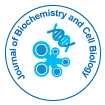当社グループは 3,000 以上の世界的なカンファレンスシリーズ 米国、ヨーロッパ、世界中で毎年イベントが開催されます。 1,000 のより科学的な学会からの支援を受けたアジア および 700 以上の オープン アクセスを発行ジャーナルには 50,000 人以上の著名人が掲載されており、科学者が編集委員として名高い
。オープンアクセスジャーナルはより多くの読者と引用を獲得
700 ジャーナル と 15,000,000 人の読者 各ジャーナルは 25,000 人以上の読者を獲得
抽象的な
Phytomolecules for Obesity and Body Weight Management
Sharma T and Kanwar SS
Obesity is one of the most prevailing health issues worldwide. It has been commonly found to be associated with metabolic disorders such as diabetes, hypertension, cardiovascular diseases and some form(s) of cancers. Excessive energy intake, physical inactivity and genetic susceptibility are main causal factors for obesity. In the modern era, various medicines have been developed for overweight and obese people, but nearly all these have serious side effects. Currently, plant-based natural products as anti-obesity therapeutics are largely unexplored. Many plant-derived molecules have been found to possess anti-obesity effects with advantages over chemical treatments. So there is a basic need to develop effective drugs for obesity management/treatment with minimal side effects. Plants may prove promising options for the same. Natural plant products are widely used in healthcare or as dietary supplements. The important phytomolecules include flavonoids, terpenoids, saponin, phenols and alkaloids. The majority of plant extracts are not single compounds but rather a mixture of different molecules, therefore their mechanism of action usually targets several organ and cellular systems. The phytomolecules would act through their inhibitory activities for pancreatic lipases, adipocyte differentiation or by increasing thermogenesis and anorexia. In this review, we discuss the anti-obesity potential of phytomolecules and also analyze their mechanisms for treating obesity.

 English
English  Spanish
Spanish  Chinese
Chinese  Russian
Russian  German
German  French
French  Portuguese
Portuguese  Hindi
Hindi